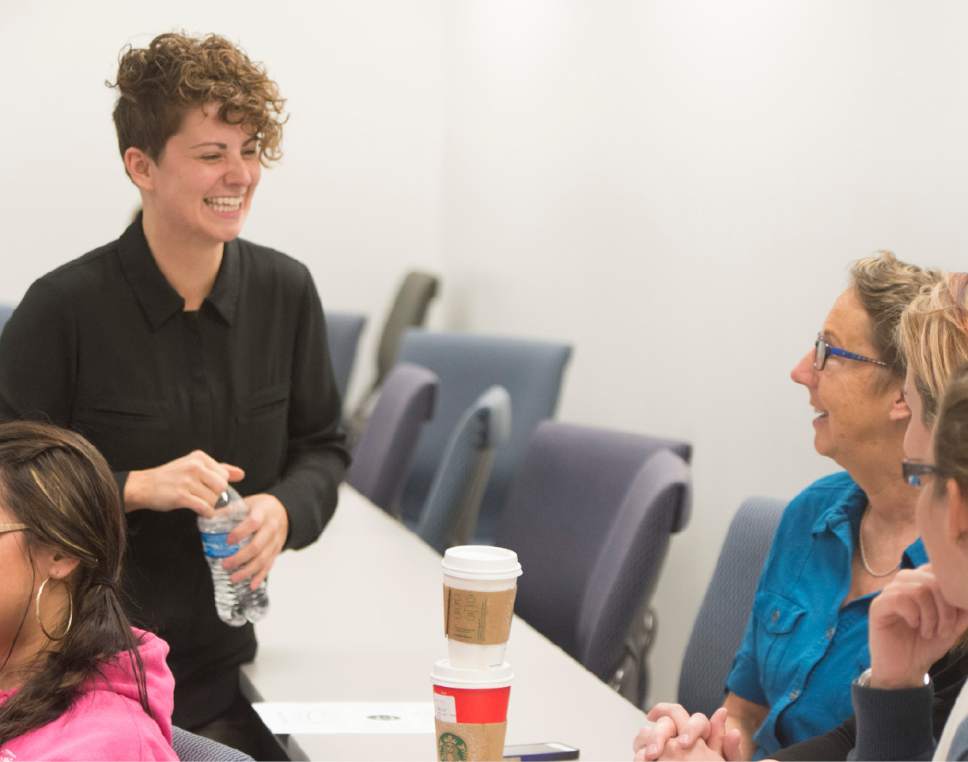This is an archived article that was published on sltrib.com in 2016, and information in the article may be outdated. It is provided only for personal research purposes and may not be reprinted.
Most Weber State University students don't pursue the sex assault training the school asks them to take online. But of those who do, more than 90 percent understood sexual consent and knew about campus disciplinary resources, according to a report.
The report was generated as part of Haven, a program used by multiple Utah colleges to assess and survey students on issues such as sexual assault. The 2015-2016 school year was the first time university officials asked Weber State's 26,000 students to complete the training, which is split into two sessions designed to be completed weeks apart.
That year, 555 students completed the first session and 286 students completed the second.
Stephanie McClure, director of the university's Women's Center, was disappointed by the low participation, but she added that a software error left some student responses uncounted.
Weber State tells students they are expected to take the training, but there is no penalty if they do not. That may change in the coming years, McClure said.
The vast majority of students who took the training last school year were white, heterosexual and 21 years old or older. More than 50 percent of the participants were women.
Under a federal law called Title IX, schools must address sex assault by not only disciplining offenders but also protecting victims and eliminating the "hostile environment" created in the aftermath of an attack. A student who may have been the victim of a sexual assault is entitled to immediate services, such as housing changes and class adjustments or more lenient deadlines.
McClure said university officials work hard to make sure students understand their reporting options.
"My No. 1 priority is for students to understand what forms of conduct are prohibited on campus ... and students have a right to report that," she said. "I want to make sure students know that and are familiar with resources in case something like this does come up for them."
But prevention is important, too, McClure said, making Haven data about bystander intervention useful.
More than 80 percent of Weber State students surveyed said they were willing to intervene if faced with a situation of sexual or relationship violence.
"We've been able to use this data already ... to help encourage students, when you see something problematic around you, you are generally not the only person in the room that feels that way," McClure said. "There's a high percentage chance that they will help you."
Based on reported attitudes and behaviors — including students' alcohol use and their views on healthy sex and consent — Haven divides some of its data into two groups: the healthy majority and the unhealthy minority. The healthy group is more likely female and to abstain from drugs and alcohol, while the unhealthy group is more likely male and members of fraternities or athletes.
More than 90 percent of students in the healthy group showed they understood what sexual assault is, compared with under 65 percent of students in the unhealthy group.
"We can figure out who are the students that need to be targeted with this information," McClure said.
About 80 percent of students in the healthy group said that an individual should not be blamed for being sexually assaulted, compared to less than 60 percent in the unhealthy group.
Additionally, more than 80 percent of healthy group participants agreed that "explicit verbal consent" is the best way to determine if someone wants to engage in sexual activity, compared to less than 65 percent of the individuals in the unhealthy group.
Students currently are taking the 2016-2017 school year Haven training, and there already is more participation than last year, McClure said.
Westminster College also has Haven training, but declined to provide survey data to The Salt Lake Tribune. Officials said they "did not give notice to the campus community in advance and told them their responses would be kept confidential."
Westminster is one of three Utah colleges — along with the University of Utah and Brigham Young University — being investigated by the federal government for their handling of sexual assault complaints. The Salt Lake City-based private school will be conducting a campus climate survey, meant to gauge the prevalence and perception of sexual assault on campus, next semester.
The U. recently released data from its first campus climate survey, which showed that most students did not know where to report a sexual assault or where to get help and support on campus.
Utah State University currently is developing a similar survey as part of the Logan school's response to an internal inquiry that identified ways to improve how sex assault allegations are handled. The inquiry was launched after The Tribune reported that four women — who did not know one another — separately told Logan police in 2015 that USU football player Torrey Green sexually assaulted them. Three of the women were USU students and say they also informed the school, but it's unclear whether USU fully investigated the allegations.
Prosecutors began re-examining the cases after The Tribune's story was published, and charged Green earlier this month with four counts of rape, one count of aggravated kidnapping and one count of forcible sex abuse.
Twitter: @alexdstuckey



